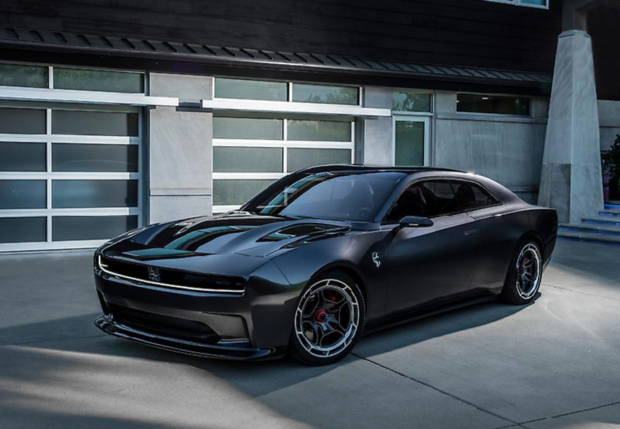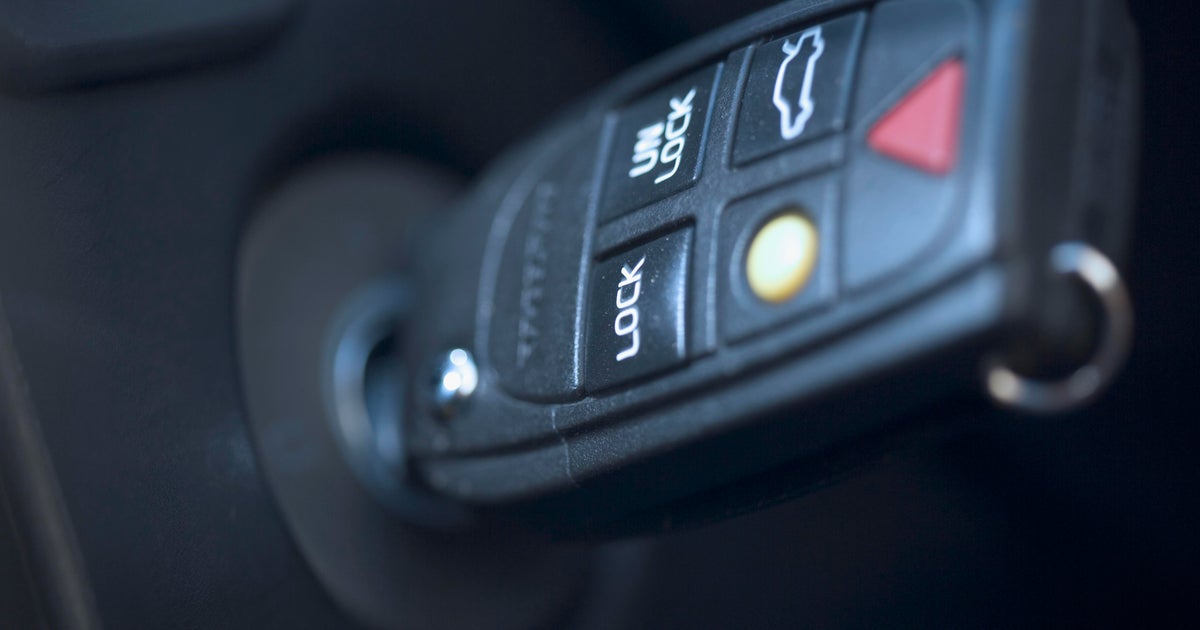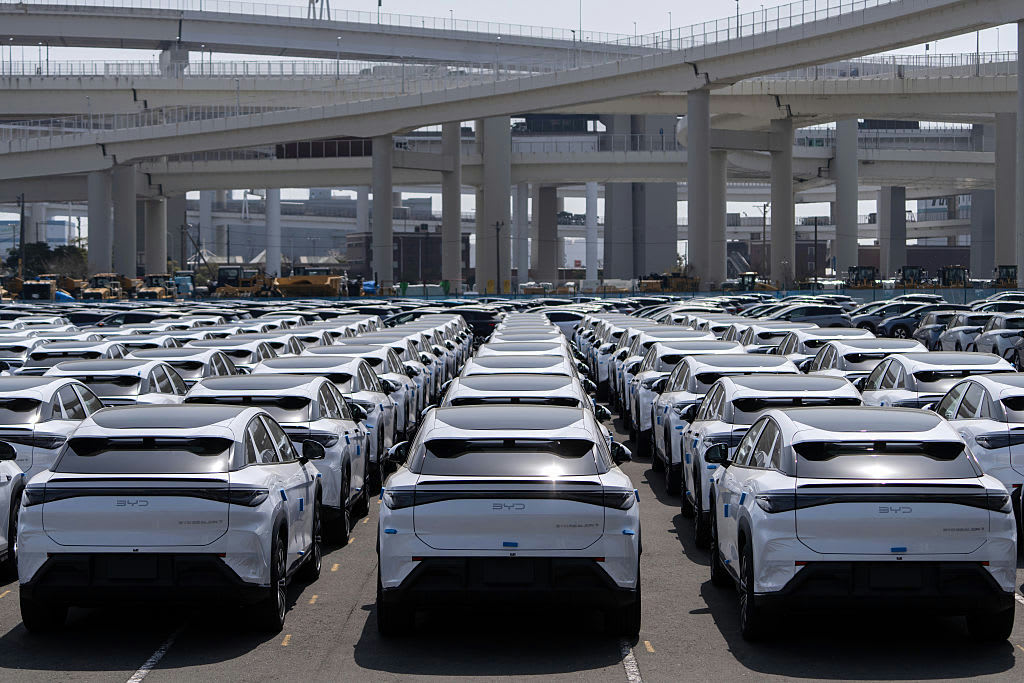Dodge unveils a fully electric version of its Charger muscle car
Thundering gas-powered muscle cars have been a fixture in American culture for decades, but as federal regulators seek to pump the brakes on carbon emissions, automakers will be replacing combustion-engine vehicles with super-fast models that run on rechargeable batteries.
Stellantis' Dodge brand has unveiled the Charger Daytona SRT — a fully electric muscle concept car, a preview of what will be produced in 2024.
A concept car is an auto manufacturer's polished rough draft of a new car that could be for sale soon.
The Canadian factory that makes the gas-engine Charger will be converted to produce electric vehicles. Dodge is also partnering with Samsung to build a $2.5 billion electric vehicle battery plant in Kokomo, Indiana.
One reason for the industry shift to batteries is that electric vehicles are simply faster off the starting line. Their handling is typically better, too, because the heavy batteries create a low center of gravity. Stricter government pollution requirements are another factor.
Tim Kuniskis, CEO of the Dodge brand, said the possibility of government fines for not meeting gas-mileage requirements hastened the company's shift to the all-electric Charger.
"Compliance fines and things like that associated with a big cast-iron supercharged V8, yes, it's tough," he said.
Of all major automakers, the EPA has labeled Stellantis with the lowest average fuel economy — 21.3 miles per gallon — and the highest average carbon dioxide emissions.
Bygone era
Muscle cars like the Charger and Challenger represent a unique style of high-performance vehicles popularized by U.S. automakers in the 1950s and marketed for their powerful engines and sporty design. Muscle cars are typically two-door vehicles with lightweight bodies designed to help the car go fast.
Americans' interest in muscle cars surged in the 1960s with the popularity of drag racing and as more customers purchased cars like the Pontiac GTO, Ford Mustang and Plymouth Road Runner. To many gearheads, the thought of a muscle car without combustion-engine noise and gas smells is heresy.
"Guys like me are just going to frown on it and laugh at it," said Rick Nelson, owner of Musclecar Restoration & Design in Illinois. "But this isn't about my generation."
Electric vehicles, Kuniskis said, have the potential to perform better than gas muscle cars with faster acceleration. But he said they are kind of sterile.
"It doesn't have the emotion. It doesn't have the drama. It doesn't have the kind of dangerous feeling that ICE (an internal combustion engine) has when it's loud and rumbling and shifting and moving the car around."
Kuniskis wouldn't say how quickly the electric Charger will go from zero to 60 mph, but said it would be faster than the company's current petroleum performance cars. He also wouldn't say the range-per-charge for the new Challenger, but added that range isn't as important as making it a true muscle car.
Kuniskis said the shift to electricity doesn't mean the end of the muscle car. It's just a new era.
"It's OK," he said. "Let us show you what the future looks like."




